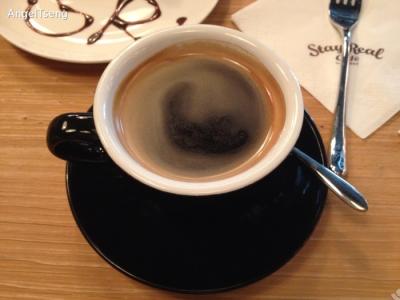Jamaica Blue Mountain Coffee Estate Cliff Estate Flavor Aroma Description

In 1950, the Government of Jamaica established the Jamaica Coffee Industry Committee (the Jamaica Coffee Industry Board), which sets quality standards for Jamaican coffee and oversees the implementation of quality standards to ensure the quality of Jamaican coffee. The Commission awarded special official seals to raw and roasted coffee exported from Jamaica, which is the highest-level national coffee institution in the world. At present, there are six kinds of marks that can represent the origin of Blue Mountain Coffee, such as Mavis Bank Coffee Factory (M.B.C.F), Blue Mountain Coffee Co-operative Factory (M.H.C.C.T.), Portland Blue Mountain Coffee Cooperative Factory (P.X.X.S.H.), Coffee Industry Association (Wallenford), Coffee Industry Association (St. John's Peak) and J.A.S.
By 1969, the situation had improved because the use of Japanese loans had improved the quality of production, thus ensuring the market. By now, this kind of coffee has reached the point of being feverishly loved.
By 1981, about 1500 hectares of land in Jamaica had been reclaimed for coffee cultivation, followed by the opening of another 6000 hectares of coffee land. In fact, today's Blue Mountain area is a small area with a planting area of only 6000 hectares, and it is impossible to grow all the coffee marked "Blue Mountain" there. Another 12000 hectares of land is used to grow two other types of coffee: Alpine top coffee and Jamaican premium coffee.
Maybe Jamaica Blue Mountain Coffee is the most famous coffee in the world, but in fact, few people know its history and why its price is so high. The first person to introduce coffee to the island of Jamaica in 1789 was a Frenchman who escaped the French Revolution. The first coffee was cultivated to increase local consumption and export in France, and the local industry was very small in the first 100 years. However, in 1932, the Jamaican Conference Law was passed to encourage coffee farming to reduce the island's dependence on sugar exports. In order to ensure the quality of Blue Mountain Coffee, changes have been made in the "Jamaican Coffee Industry" to standardize the processing process, improve coffee quality and make marketing equal, so as to save the fate of top coffee. The Jamaican Industry Association is responsible for the quality of Jamaican Blue Mountain Coffee. In addition, the lush smaller coffee on the island is equally good, and gives final authority to Jamaican coffee exports-all coffee must go through the Jamaican Industry Association before it can be exported.
Important Notice :
前街咖啡 FrontStreet Coffee has moved to new addredd:
FrontStreet Coffee Address: 315,Donghua East Road,GuangZhou
Tel:020 38364473
- Prev

A brief introduction to the treatment method of overall balanced Grinding degree and Baking degree of Santa Barara Coffee in Honduras
So there are two kinds of very good quality coffee produced in Honduras, one is the highland coffee grown at an altitude of 1000 to 1500 meters, and the other is the selected highland coffee growing at an altitude of 1500 to 2000 meters, which represents the highest level of selected highland coffee in Honduras. Most of them are exported to the United States and Germany. Although Honduran coffee does not have very distinct characteristics, but as a whole
- Next

Cliff Manor, the most superior Blue Mountain Coffee in Jamaica, St. Thomas, Origin, Development, History and Culture
Jamaican Blue Mountain Coffee, however, Blue Mountain Coffee is a coffee that coffee retailers that value credibility need to stock up anyway. The major retailer in the UK said: no matter what the price, he will continue to sell Blue Mountain coffee all year round, because he has many customers who only recognize Blue Mountain. Since Japan has always invested in the Jamaican coffee industry, the cultivation of Blue Mountain Coffee is now mostly daily.
Related
- Does Rose Summer choose Blue, Green or Red? Detailed explanation of Rose Summer Coffee plots and Classification in Panamanian Jade Manor
- What is the difference between the origin, producing area, processing plant, cooperative and manor of coffee beans?
- How fine does the espresso powder fit? how to grind the espresso?
- Sca coffee roasting degree color card coffee roasting degree 8 roasting color values what do you mean?
- The practice of lattes: how to make lattes at home
- Introduction to Indonesian Fine Coffee beans-- Java Coffee producing area of Indonesian Arabica Coffee
- How much will the flavor of light and medium roasted rose summer be expressed? What baking level is rose summer suitable for?
- Introduction to the characteristics of washing, sun-drying or wet-planing coffee commonly used in Mantenin, Indonesia
- Price characteristics of Arabica Coffee Bean Starbucks introduction to Manning Coffee Bean Taste producing area Variety Manor
- What is the authentic Yega flavor? What are the flavor characteristics of the really excellent Yejasuffi coffee beans?

